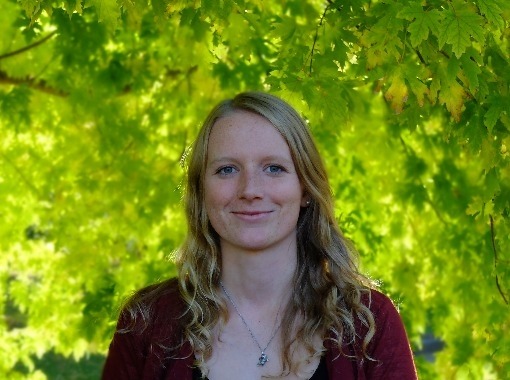Doctoral defence in Environment and Natural Resources - Nathalie Spittler

Aðalbygging
The Aula
Ph.D. student: Nathalie Spittler
Dissertation title: Sustainable Energy System Planning: Renewable Resource Dynamics
Opponents:
Dr. Jon Erickson, David Blittersdorf Professor of Sustainability Science & Policy, University of Vermont
Dr. Gudni A. Johannesson, Director, National Energy Authority in Iceland
Dr. Oliver Johnson, Head of Unit Climate, Energy and Society, Stockholm Environment Institute
Dr. Valeria Schwanitz, Associate Professor, University of Western Norway
Advisor: Dr. Brynhildur Daviðsdottir, Professor in Environment and Natural Resources at the University of Iceland
Doctoral committee:
Dr. Arnaud Diemer, Associate Professor at CERDI - University Clermont Auvergne
Dr. Peter Victor, Professor at York University
Dr. Pascale Motel Combes, Professor at CERDI - University Clermont Auvergne
Chair of Ceremony: Dr. Snæbjörn Pálsson, Professor and the Vice Head of the Faculty of Life and Environmental Sciences, University of Iceland.
The candidate is pursuing a double degree between the University of Iceland and the University Clermont Auvergne as part of the AdaptEconII project.
“Adaptation to a new economic reality (AdaptEconII) is an Innovative Training Network (ITN) funded in the frame of H2020 and the Marie Sklodowska Curie Actions. In the AdaptEcon ITN twelve Early Stage Researchers (ESRs) are training for a PhD at the University of Iceland (Reykjavik, Iceland), University of Stockholm (Stockholm, Sweden) and University of Clermont Auvergne (Clermont Ferrand, France).”
Abstract:
A holistic understanding of the underlying dynamics of sustainable energy system development and its effects on socio-economic and environmental aspects, in different national contexts, is necessary for improved decision making with regards to sustainable energy system planning. In this thesis, systems thinking approach (i.e. causal loop diagrams) is first applied to explore the general dynamics of sustainable energy system development, including the feedbacks and leverages that promote or prevent sustainable energy system development. Second, the emerging energy paradigm (i.e. sustainable energy) and questions related to the challenges arising from it are defined. An extensive model review, which assesses to what extent existing energy system models can provide answers or address the questions arising from the current energy paradigm is presented. This helps identify strengths and weaknesses of energy system models. One of the identified gaps in current energy system models is the simplified representation of the physical realities of renewable resources. This is particularly the case for geothermal resources. Therefore, the third step involves the development of a system dynamics model that captures the behaviour of geothermal resources when they are utilised for electricity production. This geothermal resource dynamics model can capture the effects of geothermal resource dynamics on capacity expansion, resource availability, production levels as well as development and unit production costs at a national systems level. Based on the findings that estimated costs significantly increase when geothermal resource dynamics are considered, while resource availability is also affected, the developed geothermal resource dynamics model assesses the effects of geothermal resource dynamics in Iceland and Kenya. For Kenya, an electricity system model that includes the dynamics of geothermal and hydropower is built. This model explores the effects of renewable resource dynamics (i.e. geothermal and hydropower) on electricity system planning, which is seen as a central element of sustainable energy system development in Kenya. For Iceland, the geothermal resource dynamics model was connected to the Icelandic energy and transport system model (UniSyD_IS). This enables investigating the importance of geothermal resource dynamics in the country’s transition to a low-carbon sustainable transport and energy system. Results show that despite the distinct contexts of the two countries (i.e. Global North and Global South), they face similar challenges arising from the character of renewable resource dynamics. In both cases, high electricity demand growth leads to unsustainable use of geothermal resources. This results in decreasing resource availability, thereby increasing the cost of geothermal electricity (development and unit production cost). The implications on sustainable (energy) system development for each country are distinct. This research shows that comprehending the implications of geothermal resource dynamics on sustainable energy system development in countries that already exploit or plan to exploit geothermal resources on a large scale is important. Additionally, this research draws attention to the need for understanding the context-specific dynamics of sustainable energy system development in more depth for achieving sustainable energy system development in different countries.
About the doctoral candidate:
Nathalie Spittler was born in 1992 in Austria. She has an interdisciplinary background as she did her Bachelor in “Environmental and Natural Resource Management” at the University of Natural Resources and Life Sciences, Vienna, Austria. During her Master studies in “Socio-Ecological Economics and Policy” at the Vienna University of Economics and Business Nathalie specialized in the field of Environmental Change and Policy as well as Multi-Level Policy. Nathalie, also, followed many courses in the Master of “Environmental and Natural Resource Management” at University of Iceland, especially focusing on energy. As part of her participation in the Regional Academy on the United Nations (RAUN) 2014/15 Nathalie worked on the topic of energy as one of the Sustainable Development Goals. During her studies she gained practical work experience at several institutions dealing with different sustainability issues. Among other those organizations include the Collaborating Centre on Sustainable Consumption and Production (CSCP), Wuppertal and the Austrian Society for Environment and Technology (ÖGUT), Vienna.
Nathalie Spittler



